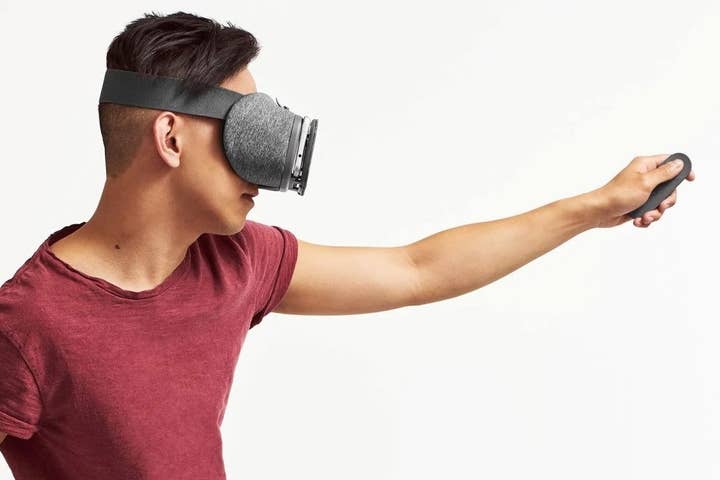Google Daydream to sell over 14m units by 2020 - SuperData
SuperData's VR forecast calls for total industry revenues to eclipse $30 billion as mobile VR really ramps up
After first announcing its intent to get into the VR space with Daydream back in May, Google has finally revealed its Daydream View headset, which goes on sale this November. As we said back in May, Google's involvement could be one of the most important things to happen to VR this year. As it turns out, according to VR sales estimates provided to GamesIndustry.biz by SuperData, the research firm sees Daydream making a pretty significant impact as well. SuperData estimates that Daydream will start with sales of 450,000 this year, triple to 1.5 million next year and eventually balloon to over 14 million in 2020.
SuperData Director of Research and Insights, Stephanie Llamas, said that consumers didn't want to spend "on a device that is literally disposable and has largely been dismissed by now as a novelty item," referring to Google Cardboard. On the other hand, premium mobile VR like Gear VR or Daydream View has a very bright future. SuperData sees Samsung selling over 2.3 million Gear VR headsets this year. Just as with traditional mobile games, VR on mobile still needs to be easy to consume. "Content will need to be easily digestible - hard-core games are not right for premium mobile. In the way that Candy Crush was able to reach an enormous variety of gamers, that's how devs should look at developing [VR] for premium mobile," Llamas advised.
High-end VR like Oculus Rift, HTC Vive and PSVR is going to pick up as well, and indeed, SuperData actually forecasts PSVR to have the most headset sales of anyone this year with 2.6 million sold through the holiday period. Vive is expected to fare slightly better than Rift, at 420,000 vs. 355,000.
"It's important to understand that Oculus Rift, HTC Vive and PSVR will continue to penetrate wider audiences as prices fall, tethered devices go untethered (still many years out though) and hardware requirements are not so high," Llamas added. "It's also important to note that Oculus, Vive and PSVR are where the premium game content purchasers are going to be. So in the same way we see mobile games accessing a bigger audience than, say, games on Steam, the profit potential is dependent on many users spending small amounts of money as opposed to just a few hard-core users spending a lot."
Diving into high-end VR is of course a risky proposition for developers given the limited installed bases currently. For that reason, Llamas said, "Many AAA developers are simply adding VR content to their flat graphics games so they can feel out the audience. It's not a proven market and profit margins are low if not non-existent for full VR games, so this is going to be a great way to dip their toes in and feeling things out."
Speaking of feeling things out, Samsung recently acknowledged that they're now taking a wait-and-see approach with VR hardware before moving more fully into standalone headsets. As noted by TechCrunch, Samsung President & Chief Strategy Officer Young Sohn bluntly stated, "Is [virtual reality] hype or mainstream? I don't have a good answer for you today."
Any new technology is going to come with a bit of hype, but VR appears to be here to stay. If you believe SuperData's forecasts, the overall VR market will grow from over $2.6 billion in 2016 to more than $30 billion by 2020, with VR game revenues accounting for almost $5.8 billion of that total. VR game revenues are expected to come in at $366 million this year, growing to just over $1 billion next year. And in case you missed it, Juniper Research has an even more bullish VR forecast today, predicting that VR hardware will generate $50 billion by 2021.









